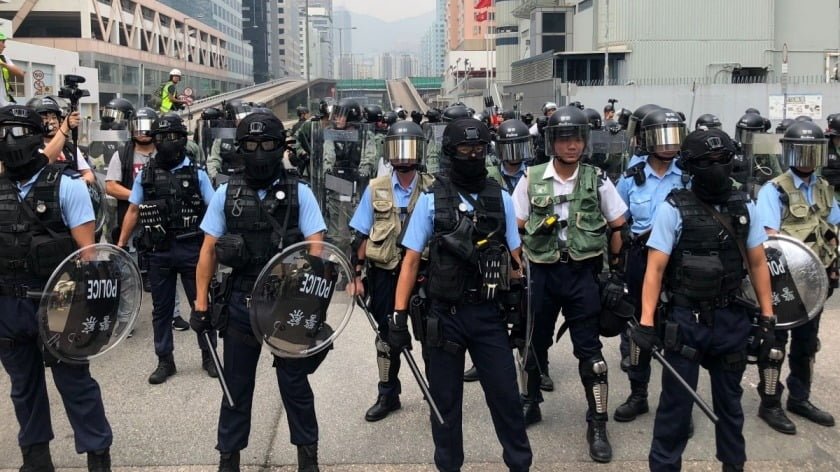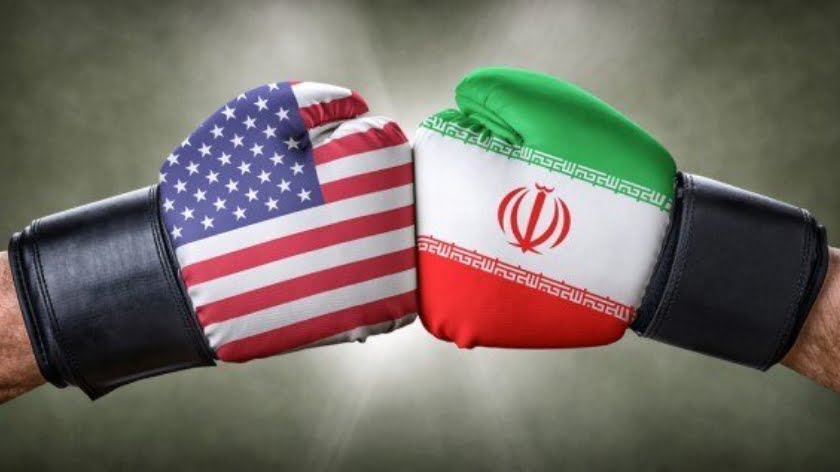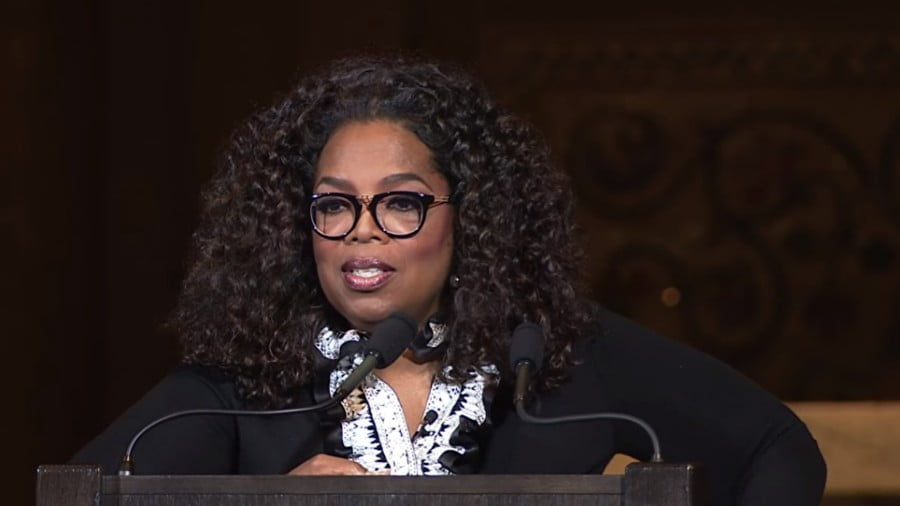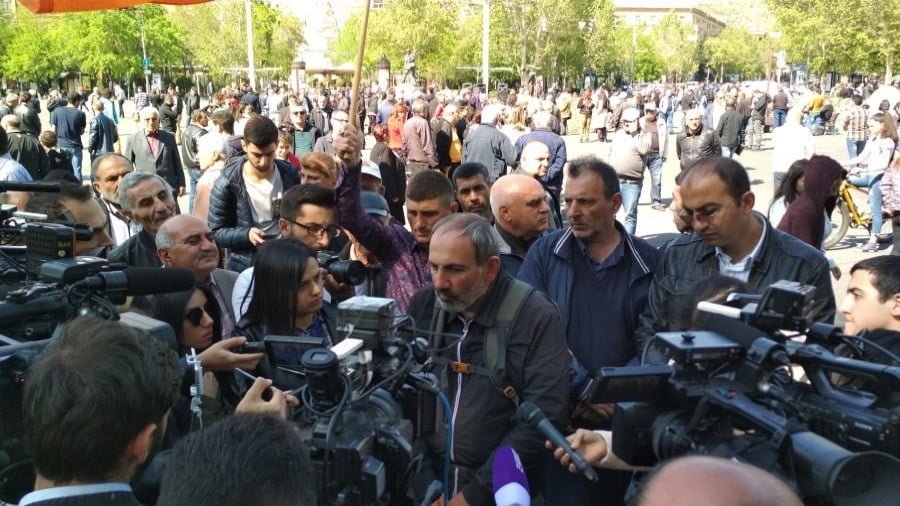None of Your Business: China, Hong Kong and a Question of Sovereignty
Hong Kong’s Chief Executive Carrie Lam seemed to relish it before the cameras this week. The United States was enduring extensive shudders of internal instability in the wake of the George Floyd protests. Dubious proposals to deploy the military were on the books. This was a superb stage show. The Chinese move to crush or, to be more accurate, bring forward, the ultimate incorporation of Hong Kong into the PRC structure, had received some breathing space.
It all had to do with a little matter called sovereignty. For years, the United States, the United Kingdom, and European Union have seen Beijing’s sovereignty over the island qualified by the Sino-British Joint Declaration and the Basic Law. On the horizon lay the magic year when this singular status would end: 2047. In 2016, the Under Secretary for Constitutional & Mainland Affairs Ronald Chan announced that 2047 should not trouble those in Hong Kong. There was “no question of the expiry of the Basic Law after 2047.”
In the “one country, two systems” formula, the one country has, at stages, been forgotten in favour of the two systems, with Hong Kong having sway in most matters of governance except foreign affairs and defence. Much of this was bound to be wishful thinking on the part of those outside China. Since June 2019, when large and determined protests commenced against the proposed extradition treaty to China, the program of integration and winding back various provisions otherwise guaranteeing autonomy in the province has been fought tooth and nail.
The onset of the pandemic provided something of a forced lull, enabling the power brokers on the mainland to take stock. In April, a sense of what was to come was floated. Beijing threatened a sitting legislator with disqualification for sitting in office for resorting to filibustering. New security legislation was aired as a distinct possibility. And a conclusion was reached that the Hong Kong and Macau Affairs Office (HKMAO) and Liaison Office in Hong Kong were exempt from the application of Article 22 of the Basic Law. The provision prohibits “departments of the Central People’s Government” from meddling in matters otherwise within the scope of Hong Kong’s autonomy.
For all that, last month’s resolution through the National People’s Congress to enact a national security law specific to Hong Kong was merely part of an organic process that would ultimately challenge, if not displace the “one country, two systems” idea. Alvin Y.H. Cheung picks up on this in Just Security, suggesting three “interrelated and long-running developments: the Beijing and Hong Kong governments’ abuse of ‘advocating independence’ as political and legal cudgel; the growing role of the Liaison Office; and the political capture of a previously professionalized civil service apparatus.”
The proposed provisions are not pretty for the protesters, but then again, such laws are the generic stuff of a state apparatus that needs to prove its mettle. These include stopping or punishing conduct that seriously endangers national security (the usual offences of separatism, subversion or organising and carrying out terrorist activities would apply).
In of itself, any security-minded type would have little issue with language that focuses on targeting subversive elements, anything threatening national security and interference from a foreign power. (According to the NPC, the legislation “opposes the interference in the HKSAR affairs by any foreign or external forces in any form”, and authorises the taking of “necessary countermeasures” where necessary.) Such language is the essence of muscular sovereignty, however ugly it looks.
The reaction towards the unilateral move has been a gift to Lam and Beijing. We use a fist; you use a sledgehammer. US Secretary of State Mike Pompeo concluded that the NPC’s decision neutered Hong Kong’s autonomous status. “No reasonable person can assert today that Hong Kong maintains a high degree of autonomy from China, given facts on the ground.” Having attacked China intermittently over its handling of the novel coronavirus, US President Donald J. Trump further mudded matters by seeking to, in his instruction, “revoke Hong Kong’s preferential treatment as a separate customs and travel territory from the rest of China.” Such privileges are to be found in the US Hong Kong Policy Act 1992, which seems to be sliding into the morgue of treaties and understandings that has been increasingly packed by the Trump administration.
Such an alteration of Hong Kong’s status will have the ill-considered effect of pushing it further into the arms of PRC control. This point has been made by pro-democracy publisher Jimmy Lai, who claims that “removing those privileges would only make Hong Kong more dependent on China.”
In this latest rhetorical skirmish, everyone has a take on sovereignty. Naturally, the unfortunates in Hong Kong are wedged in between. Commentary has been quick and sharp on the subject of the NPC resolution, much of it regretful or indignant if you so happen to be in the British or US camp. “It should have come to this,” rued Caron Anne Goodwin Jones of the Birmingham Law School. The “de facto mini-constitution that came into effect after the British handover in 1997 – specifically limited Beijing from applying national laws to the territory, except in matters of defence and foreign affairs.”
Jones naturally puts this down to unnecessary PRC authoritarian paranoia. China, she suggests dismissively, has no grounds for fearing the prospect of Hong Kong become a base for subversion. Nowhere does she mention the eye-poking Hong Kong Human Rights and Democracy Act of 2019, passed by the US Congress and celebrated by certain protesters for permitting the imposition of “sanctions on those responsible for human rights violations in Hong Kong.” The mantra about the PRC challenging the “rules-based” order, a rather seedy way of concealing the role of power behind it, is cited in conclusion.
This rings rather oddly in an age where international paperwork on that very order is being torn-up with relish, most of all by that unruly man in the White House who deems all that preceded him “bad” and the “worst”. Anything with a pre-existing rule or code must, by Trump’s reckoning, be rotten. Be it trade wars or long standing security agreements, the MAGA platform of Trump has insisted on casting all the crockery out and replacing it with makeshift, rickety substitutes. Now, it seems that the PRC has taken a leaf out the president’s own book of ruffling chaos, suggesting that Hong Kong’s Basic Law can be tampered with ahead of time.
China’s foreign ministry has not shied away from poking fun at the anger from Washington. US State Department spokeswoman Morgan Ortagus was sappy in her remark that China’s move was “a pivotal moment for the world”, one that challenged the “rule of law”, inviting an acid response from Hua Chunying: “I can’t breathe.”
Britain has also waded into the sovereignty debate in its own, merry way. The UK government has offered all Hong Kong citizens who hold British National (Overseas) passports and those eligible for the BN(O) status but had not renewed their passports on expiration the right to live and work in the UK as a prelude to becoming citizens. Up to three million would fall into this category. China, in turn, claims the offer violates the 1984 Sino-British Joint Declaration. No one, it seems, wants to read the fine print these days.
By Binoy Kampmark
Source: Oriental Review







